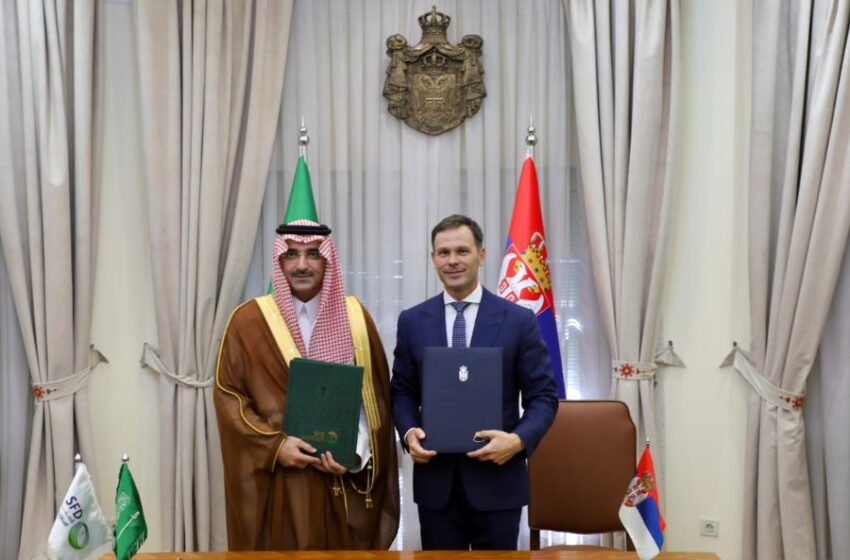
Saudi Fund for Development backs Three Projects in Serbia
Serbia’s agriculture, education and energy sectors received a shot in the arm as the Saudi Fund for Development (SFD) signed three development loan agreements worth $205 million with the Serbian government to fund key projects in them.
This partnership is SFD’s first presence in Serbia and aimed at fostering the country’s long-term socioeconomic growth. As the official development arm of Saudi Arabia, the SFD has financed more than 800 projects in over 100 countries, with a total funding of $20 billion.
In 2024, the SFD celebrated 50 years of advancing global development, with recent expansions into 11 new countries, including Serbia.
The agreements were signed by SFD CEO Sultan Al-Marshad, and Serbia’s Deputy Prime Minister and Minister of Finance Sinisa Maliin the presence of Deputy Ambassador of Saudi Arabia to Bosnia & Herzegovina Ali Aldossary and other dignitaries.
The agreements are comprised of three projects, including $75 million funding for the Strengthen Irrigation Infrastructure in Different Areas Project, $65 million for the Construction of the Bio4 Campus in Belgrade Project, and $65 million for the Development of Transmission System Operator (Phase 1) Project.
The first project will help strengthen irrigation systems and improve water management in key farming areas, by constructing new water pumping stations, rehabilitating existing canals, and creating a modern irrigation network that spans over 230 km. Targeting regions such as Novi Slankamen and Jasenicke Kapi, the project aims to boost agricultural productivity and ensure efficient water distribution during drought periods.
The second project will fund the construction of the Bio4 Campus in Belgrade, a pioneering scientific research centre focused on biotechnologies. The Bio4 Campus will house six faculties, nine scientific institutes, and state-of-the-art laboratories, including a biosafety level 3 lab, at the University of Belgrade.
The centre is designed to bring together researchers, scientists, and professionals to drive interdisciplinary innovation and collaboration in fields such as biology, medicine, and wastewater research.
The third project will expand Serbia’s energy infrastructure by building a new 400 kV transmission line and upgrading existing substations, which will help enhance the reliability of Serbia’s power supply and integrate the country into the European electricity market through the Trans-Balkan Electricity Corridor.
According to the European Bank for Reconstruction and Development (EBRD)’s Regional Economic Prospects, the GDP growth for Serbia is expected to reach 3.8% in 2024.
The Western Balkans region will see growth accelerate from 2.5% in 2023 to 3.4% in 2024 and 3.7% in 2025, driven by strong tourism inflows in Albania, sustained consumption growth in Montenegro, as well as strong investment in Serbia.
After 2.5% GDP growth in 2022 and 2023, the Serbian economy picked up significantly to 4.3% y-o-y in the first half of 2024. The acceleration was driven by services, predominantly trade, tourism and catering, and construction, EBRD said.
Strengthen Serbia’s Economy
Mali said that these three agreements with SFD is the first concrete step after last year’s signing of the Memorandum of Understanding and the projects for which this money is intended will contribute to the creation of new jobs, strengthening of Serbia’s economy, and better positioning of his country in the world scientific community.
He further said that these agreements will also reinforce the long-term partnership between the Serbia and Saudi Arabia and contribute to the implementation and development of important projects in his country.
Sultan Al-Marshad said that supporting sustainable development through strategic funding in infrastructure and education has been central to their mission and this partnership with Serbia underscores SFD commitment to fostering innovation, enhancing agricultural productivity, and improving energy security in line with the Sustainable Development Goals.















